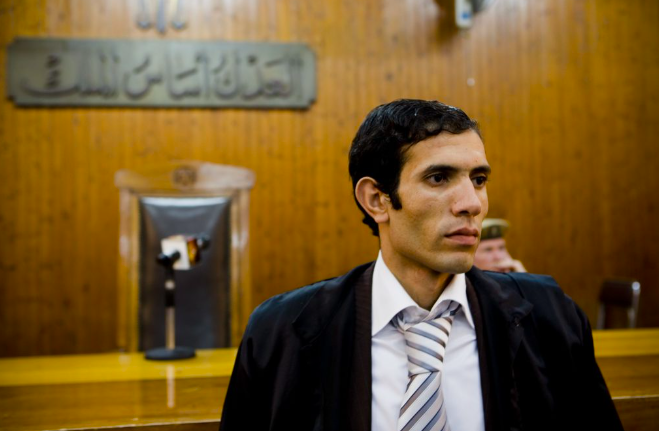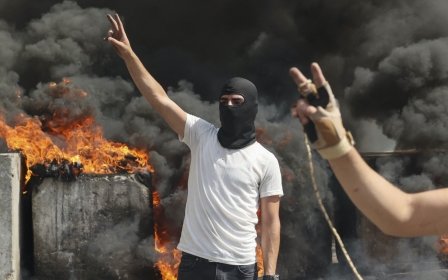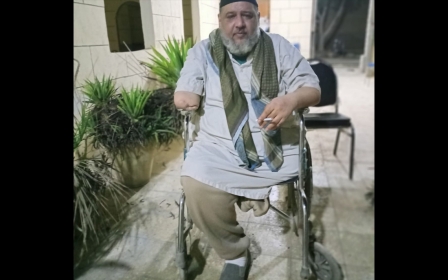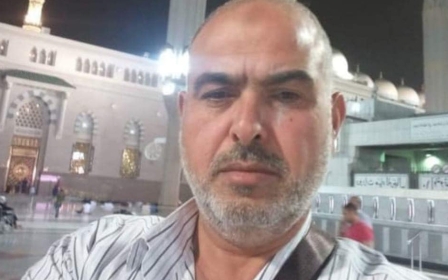Egypt prosecution orders release of dozens, including lawyer and Al Jazeera journalist

Egypt’s public prosecution has decided to release 46 prisoners, including the prominent left-wing activist and lawyer Haitham Mohamedin and an Al Jazeera journalist, officials and lawyers said.
Mohamedin, a member of the Revolutionary Socialists movement, has already been released, according to photos posted on Facebook by lawyer Khaled Ali.
He had been in custody since May 2018 on charges of affiliation to “a terrorist group", a charge commonly levelled at critics of the government of President Abdel Fattah el-Sisi since he came to power in 2013.
The list of names included in the prosecution decision has been published by pro-government media.
On Wednesday, the Qatar-based Al Jazeera network said the public prosecution also ordered the release of one of its journalists held in Egypt, Ahmed al-Najdi, but that three of his colleagues, Hisham Abdel Aziz, Bahauddin Ibrahim, and Rabie el-Sheikh, remain in pre-trial detention.
New MEE newsletter: Jerusalem Dispatch
Sign up to get the latest insights and analysis on Israel-Palestine, alongside Turkey Unpacked and other MEE newsletters
The news came on the second day of President Sisi's visit to Doha, but it was not immediately clear whether the release was linked to the visit.
'No' political prisoners
Sisi has repeatedly denied that his country holds any political prisoners, but his administration has recently launched an initiative to pardon prisoners detained in connection with political cases.
More than half of all prisoners in Egypt are political, according to the Arabic Network for Human Rights Information.
The number of prisoners in the country totalled 120,000 in March 2021, at least 26,000 of whom were held in pre-trial detention.
A Presidential Pardon Committee, tasked with facilitating prisoners’ release, was launched on 26 April during Ramadan, the month when presidential pardons have traditionally been handed out.
The new release decision comes as part of the work of the committee, according to its member Tarek el-Awadi.
The work of the committee has been criticised by several Egyptian rights groups as insufficient.
Sisi rose to power after ousting Egypt's first democratically elected president, Mohamed Morsi, a leading figure in the Muslim Brotherhood, in a 2013 military coup.
Since then, his government has targeted members and supporters of Morsi's administration in a widespread crackdown. More recently he has also targeted the secular opposition.
Middle East Eye delivers independent and unrivalled coverage and analysis of the Middle East, North Africa and beyond. To learn more about republishing this content and the associated fees, please fill out this form. More about MEE can be found here.




